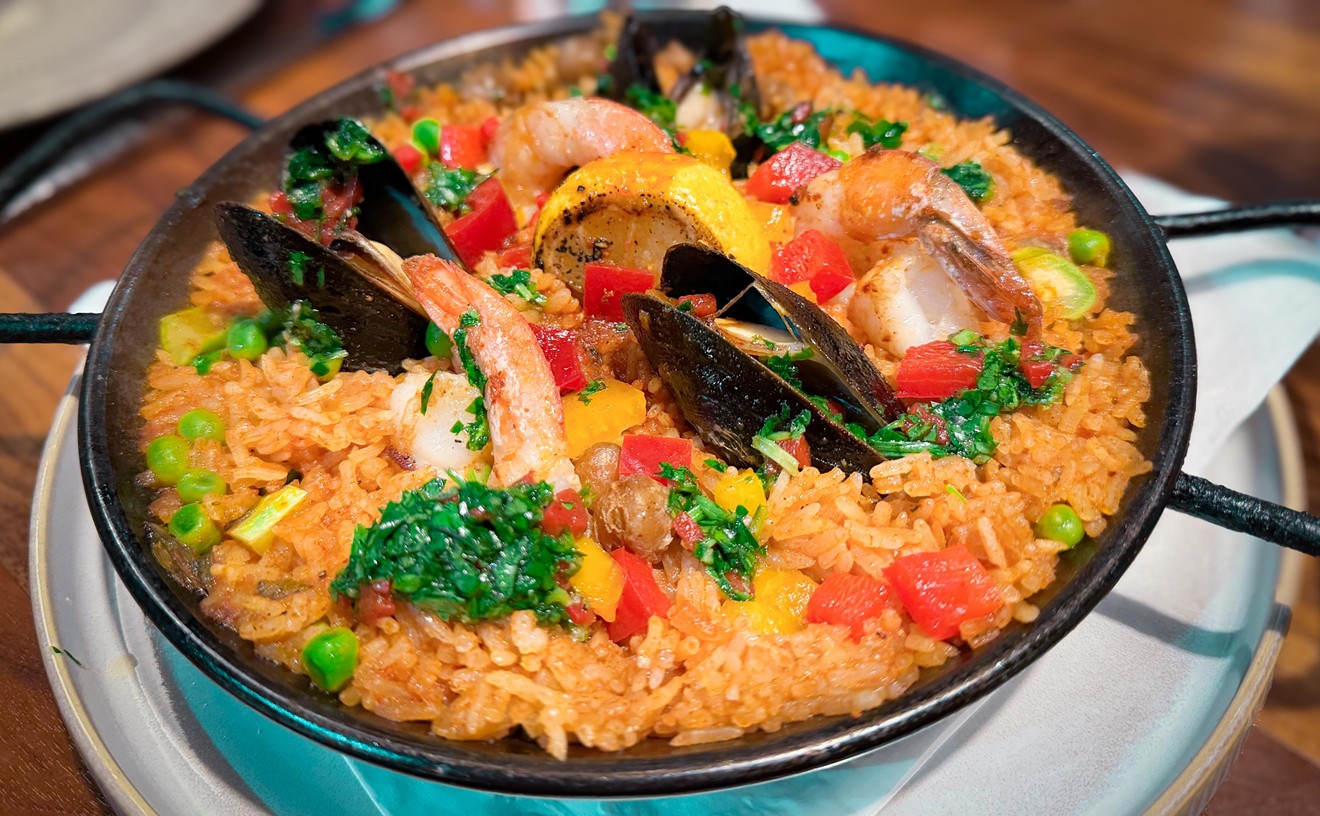Earlier this week I settled in for an appetizer and a 10-ounce steak with one side. The bill, when two drinks were added on, approached $90.
Worth it? Well, the steak was good. But there's nothing rare (if you'll pardon a really bad pun) about good steak in Dallas. I know the cost of beef jumped over the past few years and that restaurants must turn a profit. For that amount, however...
Aside from truly prized items (I could putting a high price on bird's nest soup, considering the challenges in harvesting the stuff), is it really worthwhile to spend so much on dinner? If so, what makes it worth the cost--ambiance? lobster? the creativity of a certain chef? What do you think?
Results from last week, in which we asked if all cuisines were created equal...
Although The Obvious Child posted a simple "yes," most who responded seemed to disagree--although a diplomatic
naugesque pointed out that "Michelin has ideas about correct food preparation that vary wildly from the standards of Mexico, for example (and I do not mean Tex-Mex.) Lebanese food can be done carefully or quickly too. I don't think something that takes longer is better. I do think that any cuisine that balances local flavors well and prepares the ingredients to bring out their best attributes can compete with any other cuisine."
And that's when the discussion got interesting. As Worzel Gummidge explained over two comments, "It depends if you measure by admiration or enjoyment.
I admire the technical virtuosity of the cuisine from temperate France or regions of India, or Japan. Or the verve of Heston Blumenthal. However, sometimes I enjoy more the simple traditional food of regions of Italy, Spain or Mexico. Everyone here seems to agree that cusines are not created equal, but as to which are more equal depends, in part, on the measuring rod.
Globalization has massively increased our range of choice and, in many respects, abolished seasons which defined so much of local cuisine in the past."
Building on the local idea, Bob Dobbsson added "True original cuisines, those that sprout from the soil,
water, and wind of the region where they are created, are all equal.
It's bastardized cuisines that are either better or worse than others
in comparison."
So in the final analysis, we're not so sure. As luniz explained, "In the end a talented chef can do more with the ingredients and dishes from just about any "cuisine" than a hack who thinks he's using all the right techniques and ingredients."










